When Simon vs. the Homo Sapiens Agenda arrived on the YA scene back in 2015, it built a passionate fanbase that has only grown over time. Since then, the world of Becky Albertalli has also grown, with three full-length solo novels, a novella, two cowritten novels, a film adaptation, and a TV spinoff. With a sequel to What if It's Us coming in December and an adaptation for her sophomore novel, The Upside of Unrequited, on the horizon, we sat down to chat with Becky (and some special guests) about the heart of her novels, collaboration, moving from page to screen, and some favorite new queer releases.
Hi, Becky! I’m so glad you could join me for this chat. Kate in Waiting just released in April. It's your first book — your first solo book, I should say — outside of the Simonverse, and it's also a pandemic book. What has your release experience been like, and how has it been different from your others?
Becky Albertalli: It's been interesting. I know pandemic book releases have been hard for a lot of authors, especially debuts. I’m lucky to be putting this into the world when there are readers willing to take a chance on it because they liked my other books. I was really anxious, especially around release week. I mean, my baseline is just anxiety — I have an anxiety disorder. I think a lot of my anxiety around Kate in Waiting releasing has to do with how complicated it was releasing Leah on the Offbeat in 2018. That was also the year Love, Simon came out. It's been a hard couple of years navigating life as a public figure, since my audience got so much bigger in 2018. I feel like I'm still kind of dealing with some of the fallout, and a lot of that came to a head just as I was beginning to work on Kate in Waiting. But I love the book, and I'm excited about it — I actually feel like I even got to work through some of those anxieties in the book.
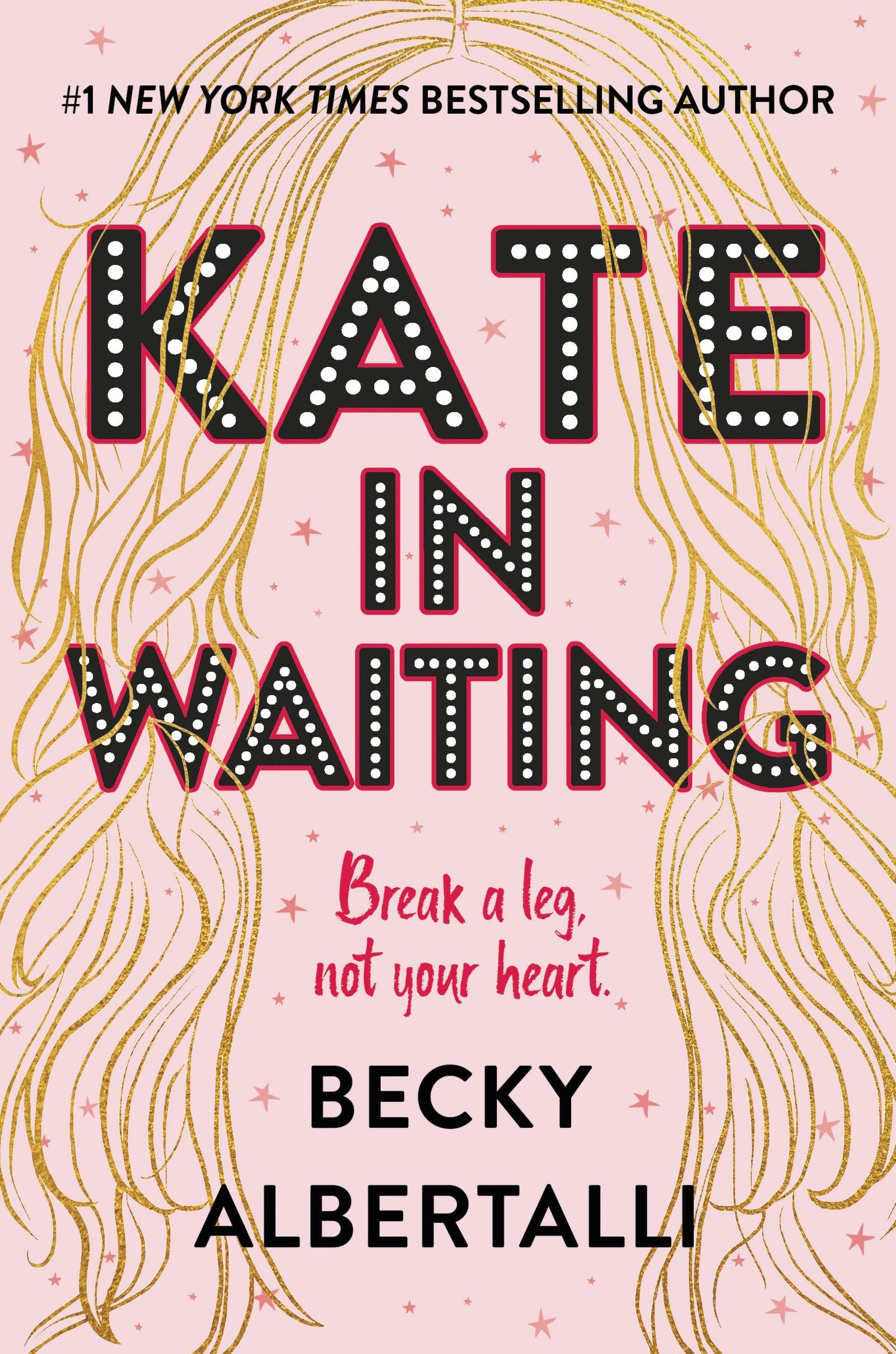
One thing I really love about Kate in Waiting is that it's very much focused on the platonic love between Kate and Anderson, her best friend. While there are romantic relationships in the book, the core of the book is very much that friendship. What made you want to shift into that?
BA: I don't know how intentional I was about that. There was never a point where I sat down and said, “Okay, I want to do something different than what I've done before.” A lot of it came together as I was following these characters into the story. And that's always true for me — I tend to have a somewhat chaotic process. I think a lot of it comes down to Kate being such a theater-kid book, and I was really tapping into my own high school theater experiences. It was such a friendship-driven time of my life. It was all about this ensemble of people — sort of like a found family before I'd ever heard that expression. I wasn’t getting any action in high school — I was nowhere near getting any action. So when I was Kate’s age, my best friendships — that was the love story for me, you know?
Yeah, and speaking of theater, obviously theater is important in Kate in Waiting. In the book, they're performing Once Upon a Mattress, but theater has also been present earlier in your work. Because in Simon vs. the Homo Sapiens Agenda, the show is Oliver, right? In the movie, it's Cabaret. So if high school Becky could have picked three shows (and they can be modern shows; they can be shows that came out after you were in high school), what do you think would have been the perfect three for young Becky?
BA: Oh my gosh, what a great question! This is very complicated because it's not quite the same as asking what my favorite shows are. Because we both know I would have been scheming and daydreaming, thinking that if they just picked the perfect show, I’d finally maneuver my way into a real part. If I wanted to be realistic, I’d be thinking which show had the most appealing background characters, but for pie-in-the-sky roles? Definitely Les Mis so I could be Éponine. That’s the dream role. I was actually in Once Upon a Mattress, which is the musical in Kate in Waiting, and I played a lady-in-waiting. I would have loved to play Kate’s part, Lady Larkin, because she has my favorite songs. Everything I say about Lady Larkin’s songs in the book is just straight truth. I was also in Joseph and the Amazing Technicolor Dreamcoat, which I put in Leah on the Offbeat. Maybe my third pick would be The Last Five Years? It would be terrible for a high school musical, though, because there are literally two parts.
Right, you probably want something with a slightly bigger cast. So you've written three novels that are in the same universe with Simon — well, three and a half if we're including the novella as well. Do you think we'll get other stories in the Kate universe?
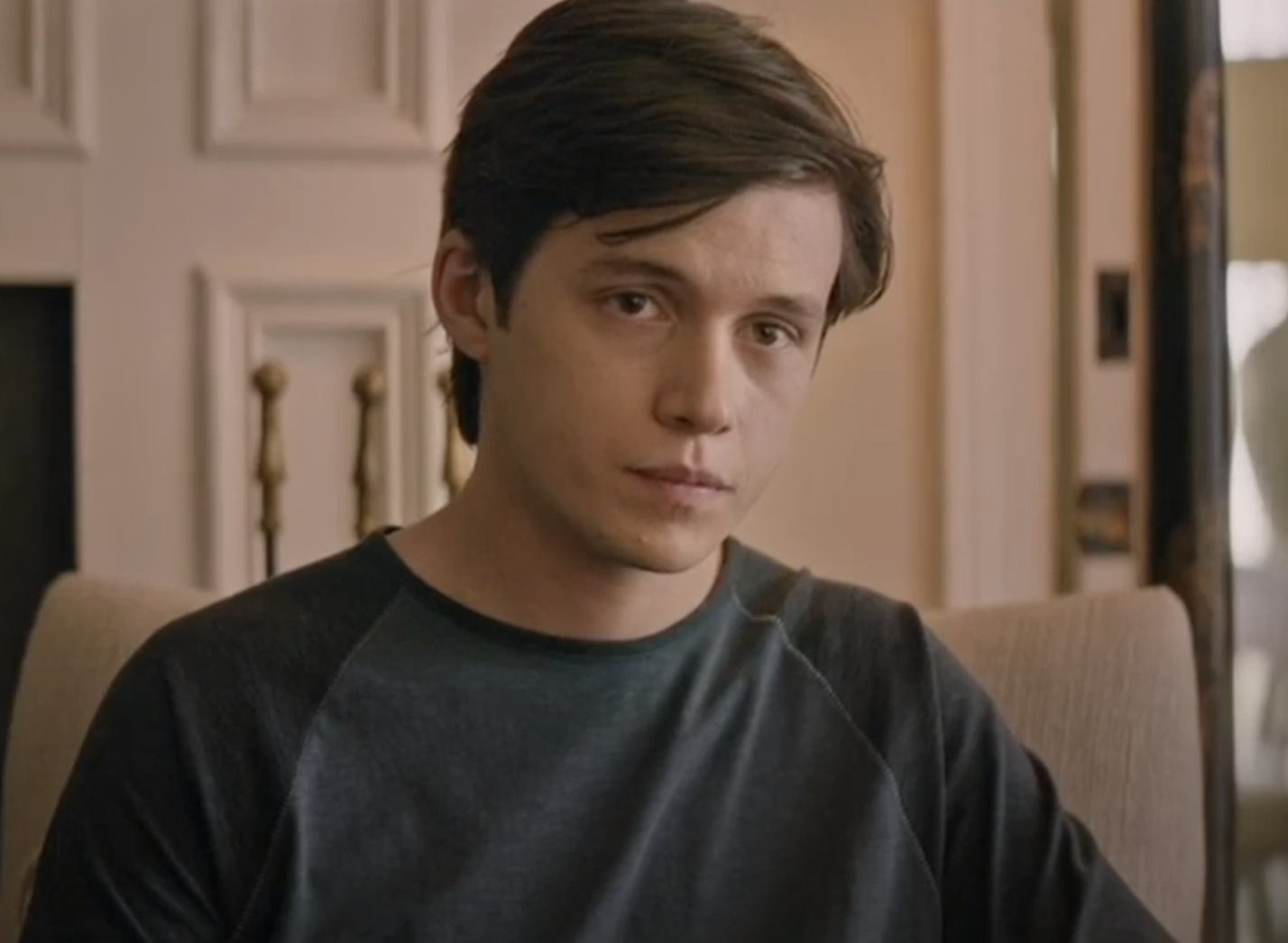
BA: I don't know! When I wrote Simon, I certainly had no idea there would be other stories told in that universe. Some of it truly has to do with whether my publisher feels like it’s a solid investment of time and resources to continue in this universe. Which really comes down to sales, and it’s just too soon to know what that looks like. And, of course, another question would be, “Is there another story there that I feel like I could be excited about telling?” I love writing characters falling in love and getting together so much that it’s sometimes hard for me to envision an entire novel that begins when they’re a couple already.
And speaking of more stories in familiar worlds, did you and Adam Silvera always know that you would be coming back to Arthur and Ben, or was it a nice surprise that just sort of happened?
BA: We always knew we wanted to! We were literally beginning to plot it on our tour for What if It’s Us, and we’d been talking about it for months before then. The fact that it’s a collab made the logistics more complicated. Because in addition to wondering whether our publisher would want a sequel, we had to find a pocket of time that worked for both of us. That’s been rough this time. We pulled it off for What if It's Us, but the pandemic definitely threw a wrench in Here’s to Us.
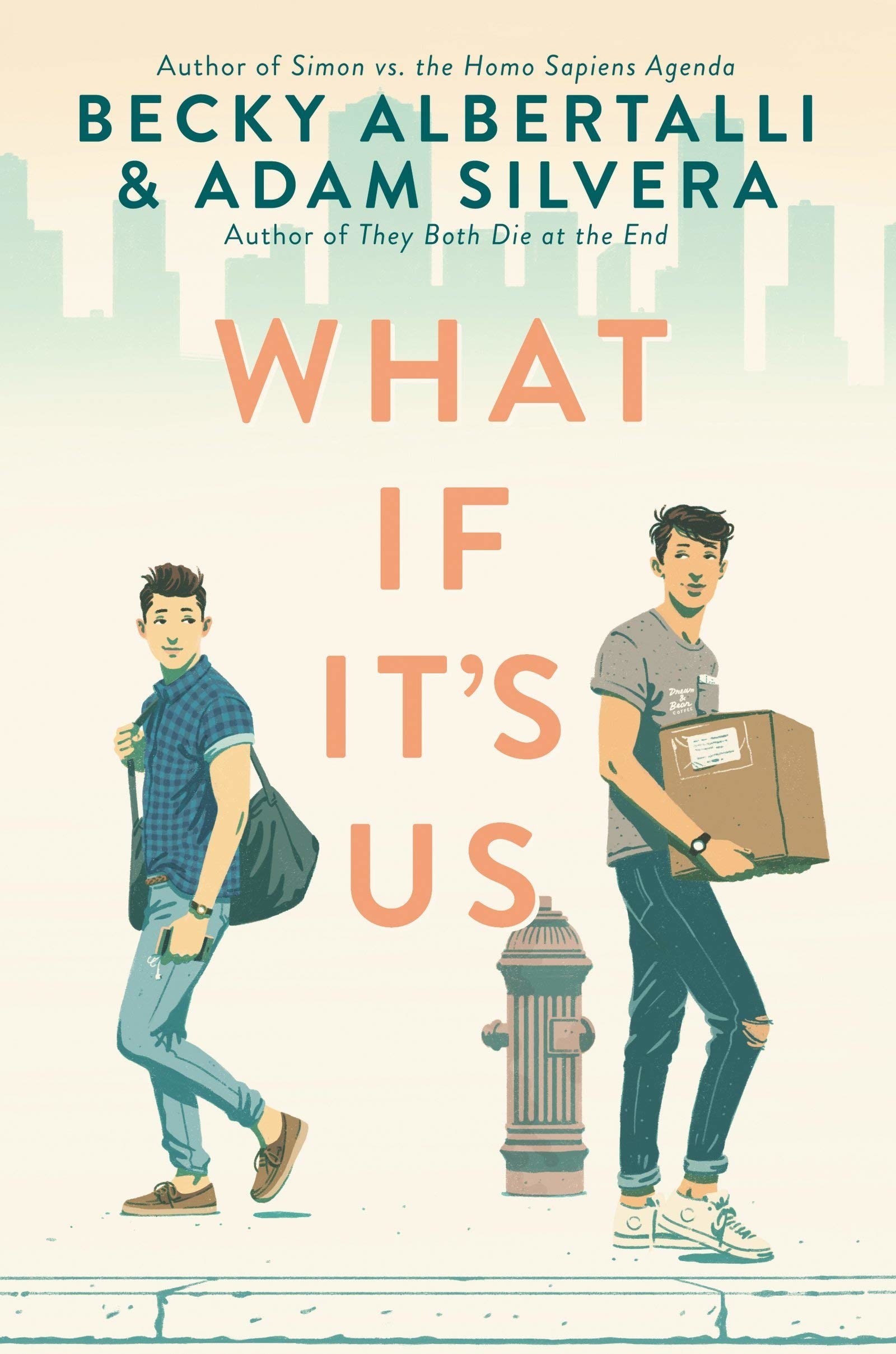
I'm sure. What is that collaboration process like?
BA: It's been very different this time around. Yes No Maybe So — my other collab with Aisha Saeed — actually had a much more similar process to What if It’s Us. Basically, we outlined everything together, which was great — it allows for this sort of creative synergy during the idea stage. And then when we moved to the actual writing stage, we’d bounce chapters back and forth after drafting them. Here's to Us has been really different. Part of that’s because my kids were in virtual school, so my workweek was cut in half. And on Adam’s end, he had various revision cycles for Infinity Reaper. So basically, since I knew I only had half a workweek, I wanted to work as far ahead as I could while Adam was finishing Infinity Reaper. So it was very isolating, and I was writing Arthur in a vacuum. It worked fine logistically because we had our outline and all of this was planned out. It wasn't like the system was falling apart. We just had to change the system and find a way to work through it. I think we’ve come around to the idea that it’s been helpful for the story in some ways, since it really let these two characters lean into their own diverging interpretations of various moments and interactions. So it was this opportunity to really be completely in Arthur's head throughout this. I wasn’t getting Ben’s perspective, so Arthur really could only know what he knows.
This is the first novel where you’ve come back to the same character for an entire book. Was there anything different that you felt like you had to do to get into the headspace? Or was it easy to get back into that voice? It's funny.
BA: In a way, both! I mean, every single book kind of ends up having its own little challenges, and I’d say that was one of them in this case. But it ended up being really fun to play around with. Arthur in What if It’s Us is such a young 16 — he’s very wide-eyed and innocent. So now I’m getting in his head two years later, and he’s had a lot of new experiences since we left off. How do I write an Arthur who’s not quite as wide-eyed, who doesn’t romanticize relationships in the same way? At the beginning of Here’s to Us, he’s been with his current boyfriend for longer than he ever was with Ben. I had to find a way to show that, but still make him still feel like Arthur.
Switching gears a little bit into adaptations, it was recently announced that The Upside of Unrequited is going to be adapted for film by the Shakespeare Sisters! It’s one of my favorite books, and I’m so excited that Hillary and Anna-Elizabeth are able to join us for a few questions.
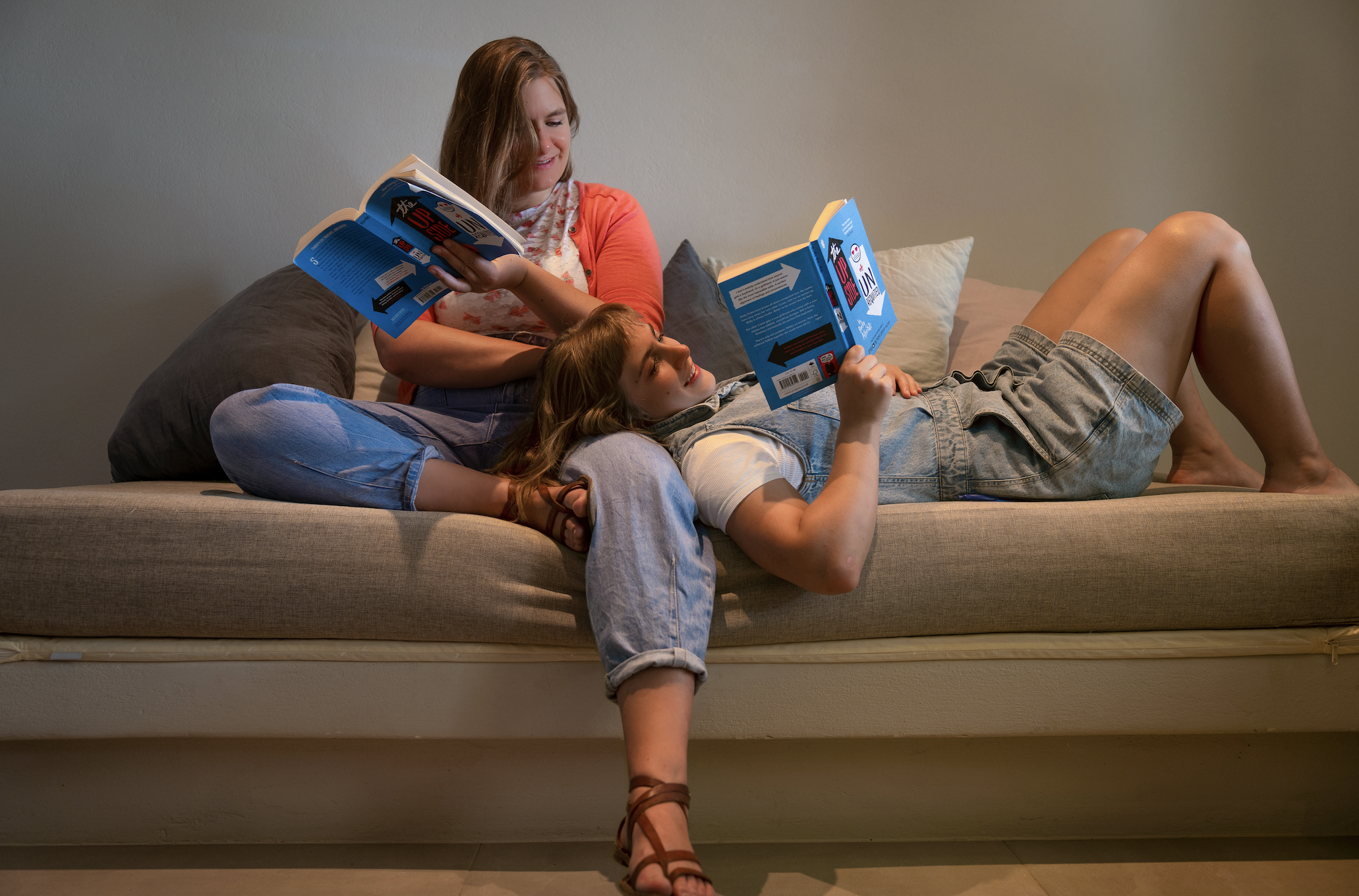
Hi, Hillary! Hi, Anna-Elizabeth! Thank you so much for joining us. What drew you to adapting Upside?
Hillary Shakespeare: I think the first thing that got us really excited was the sister relationship because we totally relate to that. We thought it was such a complex relationship between Molly and Cassie. Molly has this inner conflict between the way that she thinks that she should feel — really happy for her sister, getting her relationship — and the way that she does feel, which is kind of really lonely and left behind. I thought that was interesting because society makes it seem like romantic relationships are the most important relationships. So she has this almost self-loathing and is questioning herself: “Am I a bad person for feeling this?” Because it feels like the most important thing is romantic relationships and everybody else should just be happy for you. And it's a bit sad that it’s the way that she feels about it, you know.
Anna-Elizabeth Shakespeare: Yeah, and we thought that was quite interesting. The kind of expectation that she's struggling with and how she doesn't really know how to explain it or phrase it. In our experience, when your best friend — or, as Molly puts it, your main person — gets into a relationship, that usually isn't great for your friendship. But that's kind of a taboo thing to say, and so I think we really enjoyed watching that tension unfold.
HS: And we thought it was the chance to kind of tell that other side of the rom-com that you don’t see.
AES: An interesting start for a rom-com where it's got that, like, slightly anti–rom-com feel as well.
Exactly! That’s one of the things I love so much about it. Becky, what are you most excited to see onscreen from Upside?
BA: I mean, definitely the whole thing. One thing that I'm most excited about is seeing this book with this character who just has a lot of spiraling thoughts in her head translated to this completely different medium, which is more visual. I just can't wait to see what that looks like. It's not the kind of thing that I can visualize, but having fallen in love with Soundtrack to Sixteen, I know it's going to be incredible. I have complete faith in these incredible filmmakers.
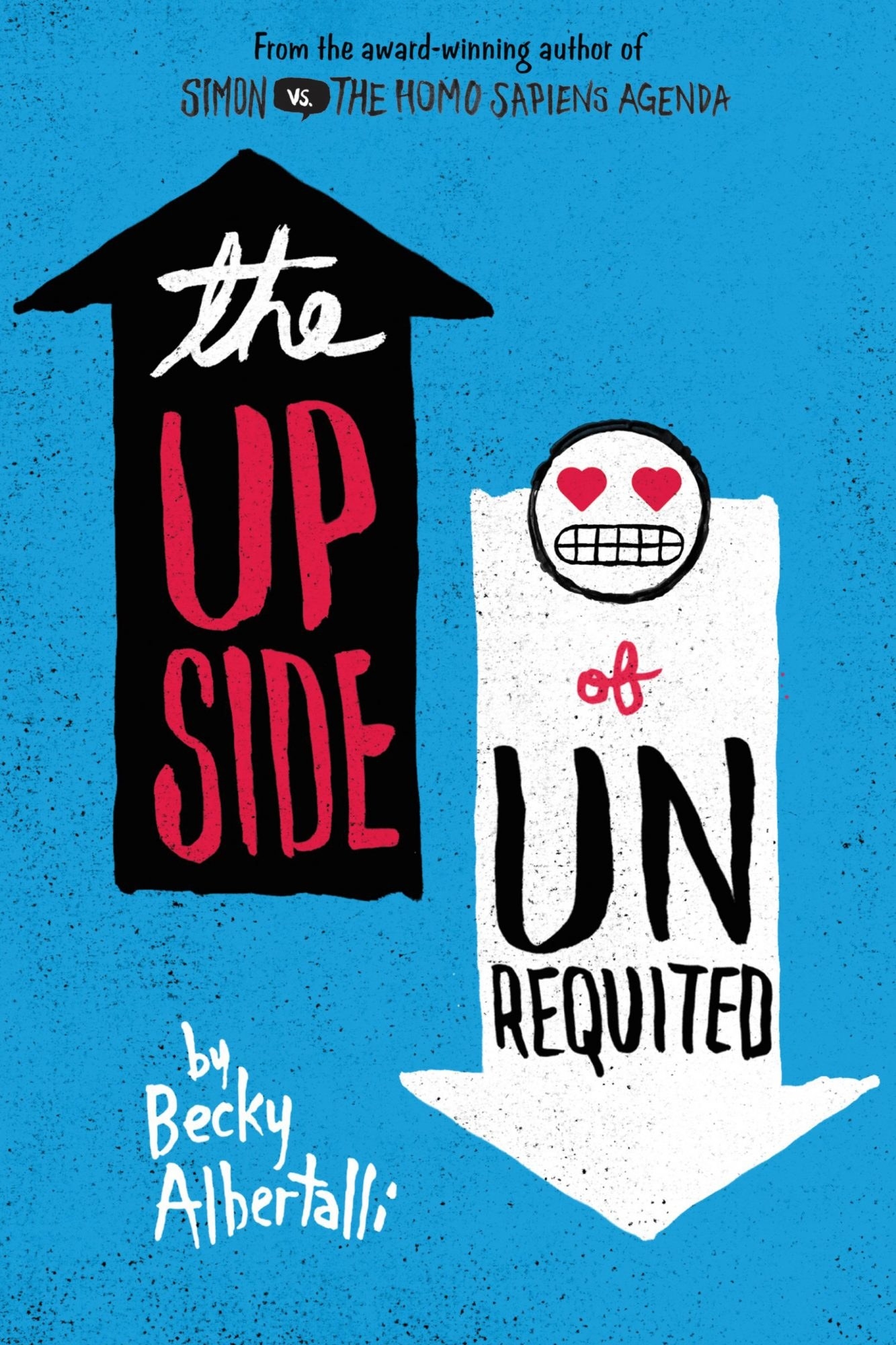
What are some of the things that you all are most excited about in terms of the adaptation process?
AES: For us, I think for us it’s that we've never done something like this before. I mean, our second feature is an adaptation of Shakespeare, so we've done that before, but it's such a different kind of process. Because then we were taking something that everyone knew so well and then trying to put our own stamp on it and really trying to do something radical with it. Whereas with this, it's really the opposite. We just kind of want to live in Becky’s world and stay there and stay true to it and shift ourselves into that world.
HS: It's so exciting for us because I feel like we're the people that get really obsessive about fictional worlds and reliving them. As kids, we used to make whole sets of things — like these animes we’d get into — and we’d read all the fanfiction and get totally into them. So it's so fun to be doing that as our job now, and we get to dive into Becky’s world.
BA: I love every part of this. I have been around the block before a couple of times with film adaptations. So I think the way I approach it is very much "live in the moment" with this stuff. It's about enjoying the creative process at every stage. I love the early conversations and the excitement of working through the story at the beginning. I loved being on set of Love, Simon.
Are there any classic or recent teen movies that are serving as inspiration vibe-wise? And Becky, were there any classic teen rom-coms or stories that served as inspiration for Upside?
HS: We reached out to Becky recently and were like, “Can you give us a list of books that inspired you?” So we're making our way through the reading list right now.
BA: And some of them came out after Upside. There's so many incredible YA books. In terms of movies, I love so many of these teen rom-coms of the last couple of decades that are tonally very different from each other. I feel like Upside could go in a couple of different directions. I could see having an Edge of Seventeen kind of feeling, but I could also see it having a more Booksmart-ish feel.
AES: Clueless for sure. And I know Becky has talked about the book being partly inspired by Emma, which we recently reread as well. Though, vibe-wise, this might come out with a little more coming-of-age, indie vibes mixed in, as well as being, at its core, a teen movie. The Edge of Seventeen, Eighth Grade, The Spectacular Now, The Half of It — I think those are movies that might be similar in style.
Do you have any favorite moments from the book that you can tell us about?
HS: I always love the love confessions. Those are always my favorite bits of romances, but next to that, I love arguments too. There are some great arguments in here, particularly between Molly and Cassie when the tension really builds up between them. There are also some lovely filmic moments, like when Molly’s mom, Nadine, takes her for a drive when she’s feeling particularly down and it’s the day that gay marriage has been legalized. The White House is lit up rainbow, and it's just got this great romantic atmosphere to it.
AES: The buildup to the love confession is going to be so much fun. That moment where Reid and Olivia meet — and then you feel Molly's stomach dropping and, like, “Oh god, everything might have changed in this one tiny moment.” Jealousy is always really fun to write, especially because it leads to the suppressed tense conversations where Molly and Reid can’t say what they mean.
BA: I'm on the same page. Obviously, I love confessions and pining — misunderstandings that feel hopeless on both sides because these characters are unbelievably clueless.
What do you think the importance of a main character like Molly is? Both having her on page for folks to find in a bookstore, and also now having her moving to the screen.
HS: There are a lot of things about Molly that make her a really great hero of the story, but one that is particularly unusual for this kind of film is the fact that she’s fat. A lot of her insecurities stem from that, and I really identify with all of them. There is this feeling — and it’s really perpetuated by a lot of teen movies — that if you’re not pretty and skinny, this isn’t about you. You’re not the one that gets to have this kind of love story. People just won’t love you back. And I think that message can become self-fulfilling if it keeps getting put out there. So for Molly, that message does get to her. She isn’t super confident, like a lot of us. But ultimately, when she thinks love just isn’t going to happen for her, she’s proved wrong. It happens for her the same way as any other teen movie, and I think that’s really lovely to get to see.
BA: I keep thinking about something that I'd heard Greg Berlanti say a couple times about Love, Simon and what it meant for him to see a gay teen love story on a screen like that. He described it as something like, typically when he'd watch romantic comedies, he could certainly be fully invested in them. He could fall in love with these stories, but there's a little bit of mental math required. He had to do a bit of work in his head to put himself in there. And for him, Love, Simon was what it felt like to not have to do as much of that work.
HS: Molly says that as well — that she can't imagine it being her. I feel like that's really sad, and it's something I wanted to explore because getting from that point to almost being able to imagine herself having sex...that's interesting.
Thank you both so much for joining us. Becky, let’s continue on this adaptation train. What were some of your favorite things about the first season of Love, Victor?
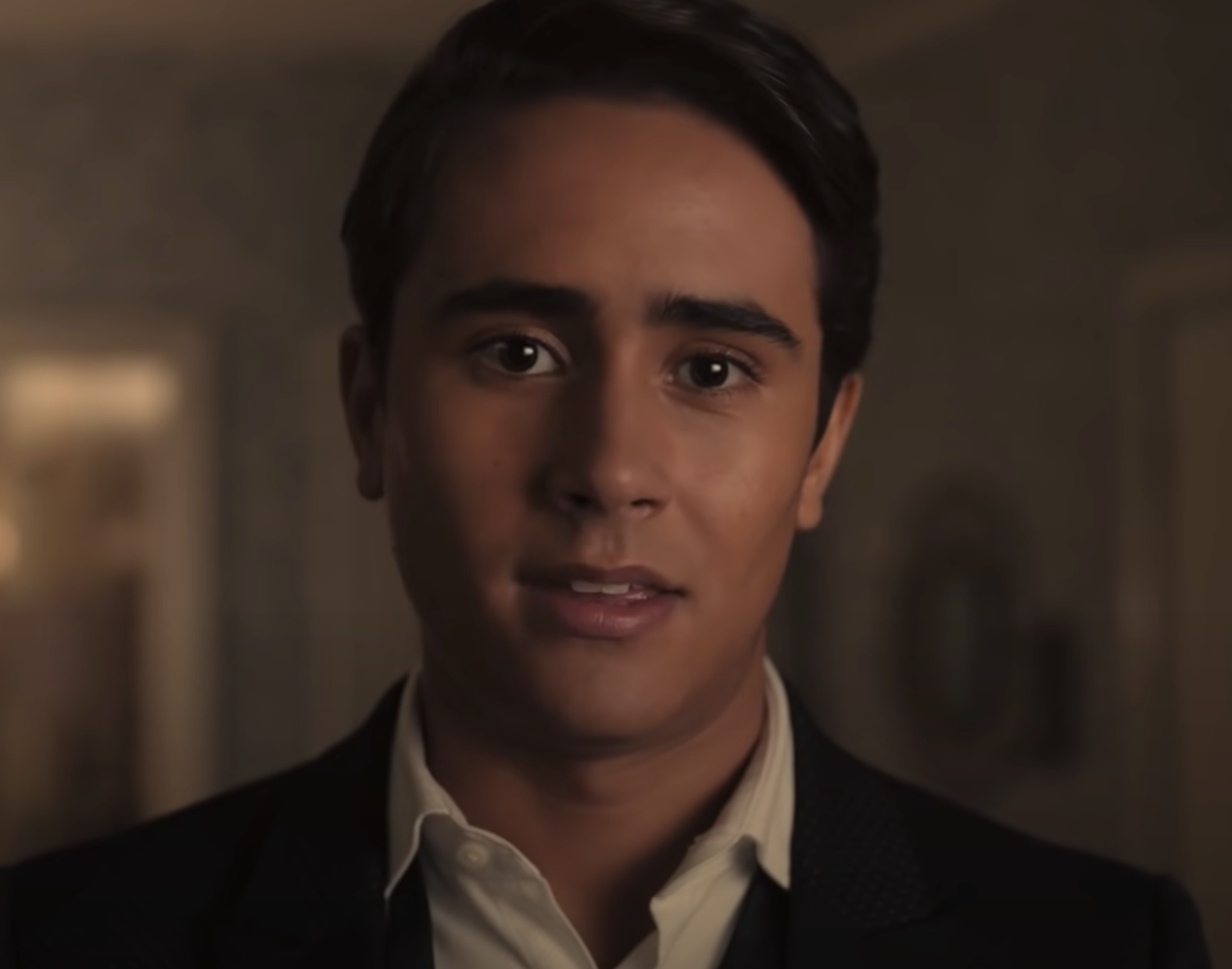
BA: I am obsessed with it. I should be very clear that I can’t take any credit for it. My role in it, largely, is that I’m the official biggest fan. But there's so much I love about it — the back-and-forth, the confusion, the uncertainty, everything Victor’s grappling with around his identity. My favorite is Episode 8, which is the episode where Victor goes to New York. Some of the conversations in that episode are so beautiful and important. But I really love this little ensemble of characters in general, and how each kid in this core group seems almost like a teen movie archetype when you meet them. But then you end up going beneath the surface with every single one of them, and they’re these very real, messy teenagers. It is an honor to have them at my fictional high school.
You're such a wonderful advocate for other queer books. Do you have any favorites that you've blurbed recently? Any that you're super obsessed with that you want people to either buy now or preorder?
BA: There are so many I'm excited for, so I will never be able to name all the ones that I am completely in love with. It is the usual frustration; I’m sure you understand this.
Completely understand!
BA: Definitely Cool for the Summer by Dahlia Adler. I love that book — it spoke to me quite a bit for many reasons. Dahlia’s so good at leaning into these characters who make bad decisions and have messy, complicated feelings, and that's treated with so much respect and care. They really do feel like kids living through this particular formative moment, and I was completely sucked in. Another one that I want to mention is The Passing Playbook by Isaac Fitzsimons. I really connected with the voice on this one. I love these characters who are imperfect but fundamentally good, and they’re trying to do the right thing under complicated circumstances. It's a brilliantly done coming-of-age story with so many layers. And then The Ghosts We Keep by Mason Deaver. It's such a beautifully written, devastating book. Mason is so good at capturing and living in those feelings and not keeping them at arm's length. It's very cathartic to read. Definitely get your tissues ready.
Thank you so much for your time, Becky; I've really loved chatting with you!
Learn more about Becky by visiting her website, or find her on Instagram. You can buy The Upside of Unrequited and the rest of Becky's novels wherever books are sold.
